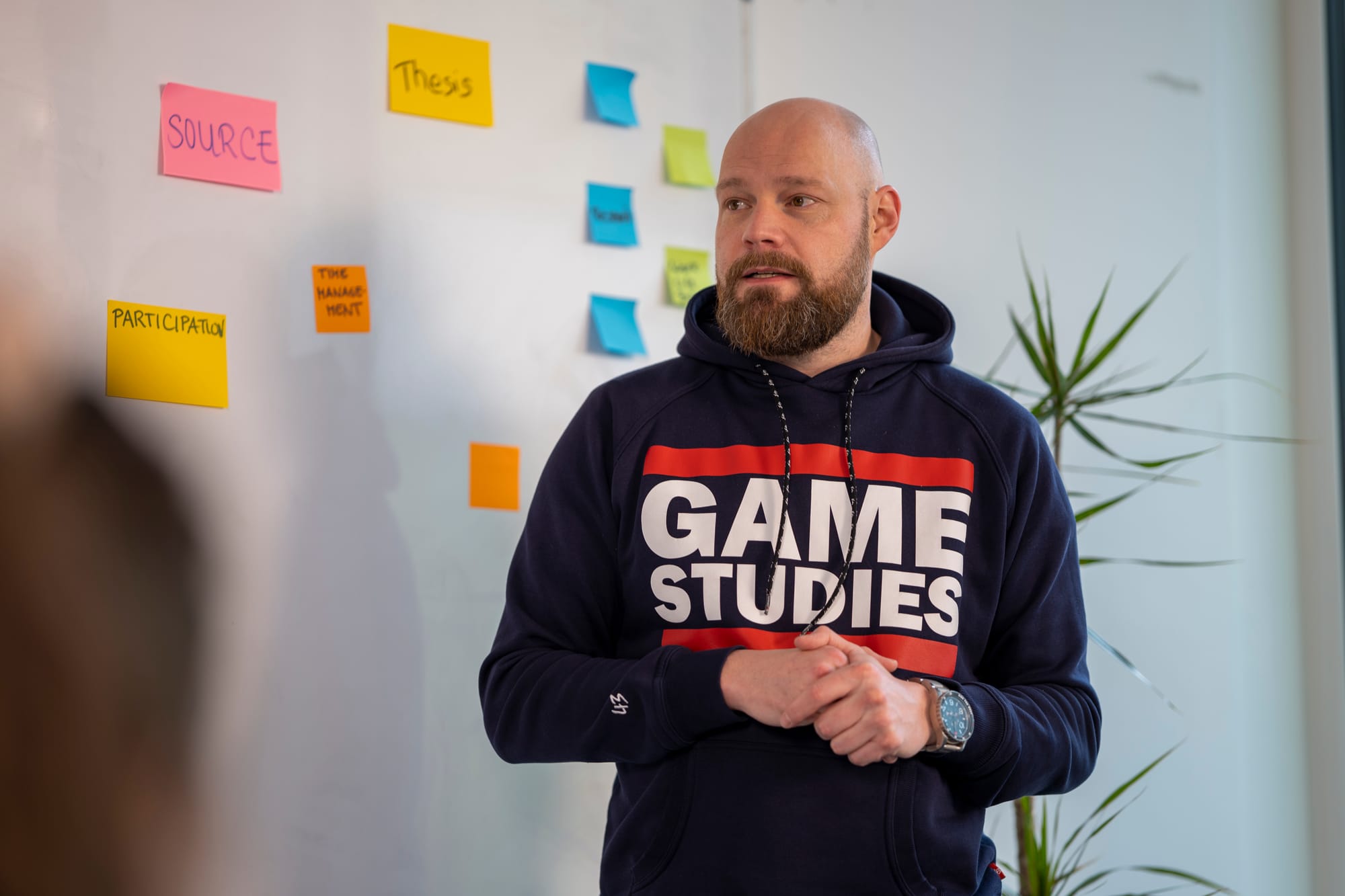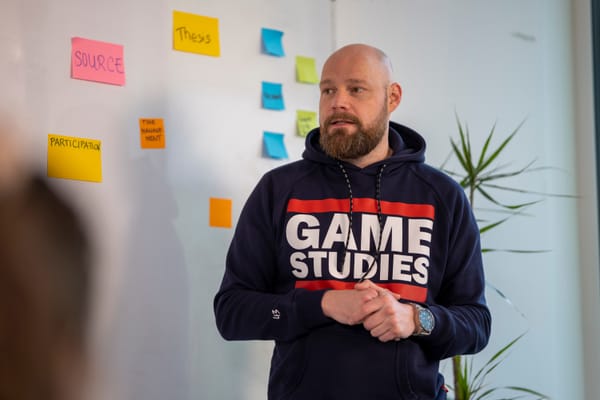Game Studies Watchlist #47
The Game Studies Watchlist newsletter, curated by Prof. Dr. Rudolf Inderst, is published weekly on GamesMarkt. This week's topics include layers of reality, an apolyptic anthology and other newsletter recommendations.


The Game Studies Watchlist newsletter, curated by Prof. Dr. Rudolf Inderst, is published weekly on GamesMarkt. This week's topics include layers of reality, an apolyptic anthology and other newsletter recommendations.


AHOI there, game studies operators!
This week, I will feature an essay by The Cursed Judge. I think that only happened because I liked the first sounds of the clip (oh, a mysterious bell ringing?) so much, but then I was lucky because I also really liked the rest of the video.
A video about nested game structures, their history, and their artistic and narrative consequences.
This video game essay explores how games blur and expose layers of reality by using titles like Pony Island and Inscryption to show how “games within games” reveal hidden meta narratives that players aren’t meant to see. It contrasts seamless design structures with games such as Cult of the Lamb, where two full gameplay modes create tension when one is preferred, and then looks at works that deliberately break immersion, like Basilisk 2000, by foregrounding the tools and screens that normally stay invisible. The author also examines worlds that literally contain other games, from Animal Crossing and Shenmue to Minecraft running Doom, and concludes with Deltarune, suggesting a universe where retro game worlds exist inside the fiction and where forgotten spaces imply a connection between players, code, nostalgia, and the evolving history of the medium.
These thoughts hold interesting questions for Game Studies scholars and reseachers since they touch several core research concerns at once: they highlight how games construct and destabilize immersion, how players become aware of systems and authorship through meta-layers, and how nostalgia and media history are embedded inside contemporary game worlds. By examining titles that foreground “games within games,” the topic raises questions about ontology (uhm, I guess, what a game ... is), remediation and self-referentiality, and the shifting role of the player as both participant and observer. It also speaks to design theory by comparing seamless versus segmented structures and how player preference exposes tensions in hybrid genres; it connects to cultural and historical perspectives by showing how games archive, reference, and reanimate earlier forms of play, making the medium’s past part of its narrative fiction. In doing so, it demonstrates why meta-games are not just curiosities, but valuable case studies for understanding how digital games comment on themselves, their players, and their evolving place in media culture.
I have a question: Are YOU one of the ... Last of Us? Well, I had the great pleasure to talk to Adrienne Domasin about her book The Psychgeist of Pop Culture: The Last of Us (Playstory Press, 2025) on my podcast Game Studies. Enjoy our conversation right here. Btw: I am always looking for new conversation partners, if you are an author or editor in the field of game studies or game design and want to talk about your latest publication, please DM me.
If Gaming the Apocalypse is your thing, I have some great news for you! The official anthology of FROG 2024 is here; right now 27 of 29 papers are already live. Check it out right here.
Together with the wonderful Arno Görgen, I also contributed to this wonderful game studies mix: From Fragmentation to Formation: Academic Anthologies as Catalysts for Digital Game Studies. Reflections on the Fallout Collection Old World Blues. Felix Austria, indeed!
Unlike other panicky and jealous newsletter providers, I regularly and gladly refer to other good newsletters. Growing together is the motto! So, please feel free and check out The Video Game Library’s Substack.
Remember this line? "Why'd you have to go and make things so complicated?" Let's hear it from the source then ... no, that one, another one: OASIS Lunchtime Talk: Why being a Ukrainian game studies scholar is… complicated?
... please do me a favor and don't fall for all this Black Friday nonsense, okay? You're too clever for that, aren't you?
You are welcome to share your ideas and feedback with me. If you like Game Studies Watchlist, please tell your friends, colleagues, as well as fellowship and post on social media about it! Please support my work in game research & culture, consider contributing via Buy Me a Coffee.
Cheers and stay healthy,
Rudolf